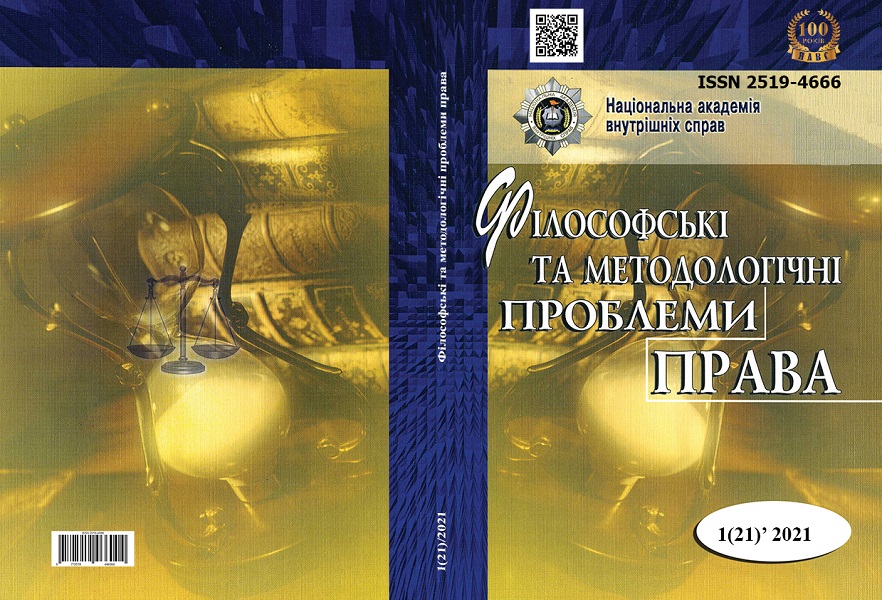Національне врядування як основа побудови нової моделі мовної політики в сучасних умовах
Анотація
Мета статті – проаналізувати національне врядування як основу для розбудови моделі мовної політики на новій інституційній базі, яка трансформується, якщо на зміну одним політичним елітам до влади приходять інші. Методологічну основу статті становить сукупність філософських, філософсько-правових і загальнонаукових методів, серед яких визначальними є діалектичний, логічний, історичний, системний, структурно-функціональний, а також діяльнісний, інституціональний, семіотичний та інші міждисциплінарні підходи. Наукова новизна. Аргументовано позицію, згідно з якою національне урядування матиме конструктивну основу для розбудови моделі мовної політики лише за умови функціонування в незалежній демократичній державі та розвитку на новій інституційній базі, коли різні політичні інституції матимуть можливість конкурувати та змагатися між собою не лише під час виборів, а й у повсякденному політичному житті. З огляду на зазначене, досліджено конструктивні дії комуністичних і національно-демократичних політичних сил, які в кінці 1989 – на початку 90-х років ХХ століття спільними зусиллями ухвалили декілька законодавчих актів, серед яких Закон УРСР «Про мови в Українській РСР», у якому українську мову проголошено державною; Декларація про державний суверенітет, без якої не було б проголошено Акт про незалежність України, а також схарактеризовано Всеукраїнський референдум, під час якого було обрано Президента Незалежної України. Висновки. Деструктивними наслідками урядування проросійськи налаштованих політиків в Україні є ухвалення ними таких законів, як: «Про ратифікацію Європейської хартії регіональних мов або мов меншин»; «Про засади державної мовної політики», які посилили розкол української спільноти й держави на регіональному, мовно-політичному та інших рівнях. Це суперечить національним інтересам сучасної України, загрожує її незалежності та розбудові моделі мовної політики на новій інституційній базі. Щоб розв’язати зазначену проблему, слід активізувати розробку окреслених напрямів дослідження, представників національно-демократичних політичних сил, політологів, учених-правознавців і самих суб’єктів політики.
Ключові слова: національне урядування; незалежна держава; політичні мережі; моделі мовної політики; нова інституційна база.
Завантаження
Посилання
Андрущенко В. Роздуми про освіту: статті, нариси, інтерв’ю. Київ : Знання України, 2004. 737 с.
Балашенко І. Мовний простір в контексті міжнаціональних відносин : автореф. дис. ... канд. філос. наук : 09.00.03. Одеса, 2004. 19 с.
Дьоміна О. Аксіологічні основи національної ідеї. Гілея. 2015. Вип. 93. С. 201–205.
Костицький М., Камінська Н., Кушакова-Костицька Н. Перспективи вдосконалення діяльності Конституційного суду України в умовах сучасних соціальних трансформацій. ScienceRise. 2019. № 3 (9). С. 4–11. doi: https://doi.org/10.15587/2523-4153.2019.180113.
Кресіна І. Українська національна свідомість і сучасні політичні процеси: (Етнополітичний аналіз) : монографія. Київ : Вища шк., 1998. 392 с.
Кресіна І., Горбатенко В. Основні напрями правового регулювання мовної політики. Мовна ситуація в Україні: між конфліктом і консенсусом. 2008. С. 335–343.
Кириченко В. Злагода й розсудливість нам на роду написані. Віче. 1994. № 4 (25). С. 89–97.
Лазарович Н. Криза соціокультурної ідентичності в сучасному українському суспільстві. Молодий вчений. 2019. № 10 (74). С. 34–39. doi: https://doi.org/10.32839/2304-5809/2019-10-74-8.
Лопушинський І. Формування та реалізація державної мовної політики в галузі освіти України : автореф. дис. ...
д-ра політ. наук : 25.00.02. Київ, 2008. 30 с.
Мартенко О., Павлишин О. Взаємозв’язок мислення, свідомості та мови в концепціях античних мислителів. Юридична психологія. 2019. № 2 (25). С. 31–37. doi: https://doi.org/10.33270/03192502.31.
Михальченко М. Українська національна ідея як регулятивна сила в загальнодержавному і регіональному масштабах. Регіональні версії української національної ідеї: спільне і відмінне. 2005. С. 9–34.
Павлишин О. В. Правова реальність як знакова система : монографія. Харків : Право, 2017. 336 с.
Павлишин О. В., Васюта Ю. В. Справедливість як елемент ідеї права та її місце в системі правових цінностей. Філософські та методологічні проблеми права. 2020. № 2. С. 40–47. doi: https://doi.org/10.33270/02202002.40.
Савойська С. Основні наукові підходи щодо осмислення моделі мовної політики як політологічного концепту. Вісник Донецького національного університету імені Василя Стуса. 2020. № 5. С. 28–39. (Серія «Політичні науки»). doi: 10.31558/2617-0248.2020.5.5.
Смольніков Ю. Проблема відродження української мови та історичної пам’яті в Україні (др. пол. 80-х – поч.
-х рр. ХХ ст.). Теоретичний аналіз : автореф. дис. ... канд. іст. наук : 07.00.01. Київ, 2005. 23 с.
Смолянюк В. Національні інтереси України як основа суспільної само ідентифікації. Проблеми самоідентифікації сучасного українського суспільства: політичні, економічні, соціальні та культурні аспекти : матеріали наук.-практ. конф. Киїі : Нац. акад. урядування, 2009. С. 42–47.
Солдатенко В. У пошуках соціальної і національної гармонії (ескізи до історії українського комунізму). Київ : Світогляд, 2006. 435 с.
Танчин І., Луцишин Г. Українські праві радикальні партії після Революції гідності. Гуманітарне бачення. 2016. Вип. 2. № 2. С. 43–48. doi: https://doi.org/10.23939/shv2016.02.043.
Трибушний О. Мовна політика в Україні: проблеми і пріоритети. Віче. 1997. № 9 (66). С. 99–107.
Ярошенко В., Присяжненко І. Символічна політика та символи в інформаційно-комунікативному просторі: аспекти впливу. Наукові праці. 2014. Вип. 236. Т. 248. С. 28–33.
Переглядів анотації: 198 Завантажень PDF: 148
Авторське право (c) 2021 Філософські та методологічні проблеми права

Ця робота ліцензується відповідно до Creative Commons Attribution-NonCommercial-NoDerivatives 4.0 International License.
- Автори залишають за собою право на авторство власної праці та передають журналу право першої публікації цієї роботи на умовах ліцензії Creative Commons Attribution License, яка дає змогу іншим особам вільно розповсюджувати опубліковану працю з обов’язковим посиланням на авторів оригінальної роботи та першу публікацію статті в цьому журналі.
- Автори мають право укладати самостійні додаткові угоди щодо неексклюзивного розповсюдження роботи у тому вигляді, в якому вона була опублікована в журналі (наприклад, розміщувати статтю в репозитарії установи або публікувати у складі монографії), за умови збереження посилання на першу публікацію роботи у цьому журналі.
- Політика журналу дає змогу і заохочує розміщення авторами в Інтернеті (наприклад, у електронних сховищах установ або на особистих веб-сайтах) рукопису статті як до подання цього рукопису до редакції, так і під час його редакційного опрацювання, оскільки це сприяє продуктивній науковій дискусії та позитивно впливає на оперативність та динаміку цитування опублікованої роботи.




